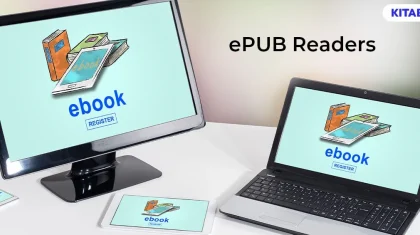
Solving Top 5 Global Education Challenges
While education makes up only 6% of the global GDP, it still poses a significant challenge to development. Most nations worldwide struggle with the main educational issues of quality, effectiveness, and relevance, which impede the improvement of their economic situation.
We are all aware that there is much potential for improvement in the field of education worldwide. But how are we going to construct schools in areas devoid of infrastructure? Or give teachers the resources they require if we aren’t even sure what those resources may be?
Table of Contents
I. Challenges in Global Education: An Overview
II. 5 Barriers to Global Education
- Digital Proficiency
- Diversity and Equal Opportunity
- Deficit in Innovation
- Learning Methods
- Inadequate Talent
III. Why is it Imperative to Address the Problems with Education Worldwide?
Challenges in Global Education: An Overview
The worldwide education system is currently dealing with some serious issues. Since the turn of the century, the globe has undergone significant change, and new problems now need to be solved. Systems of education must adjust to keep up with this rapid development.
The road to a better future is paved with education, but getting an education doesn’t only mean going to college or university. Poverty, gender equality, and political unrest are just a few of the numerous elements that will have an impact on how education is provided in the future.
Even if the importance of education has increased in the digital era, millions of youngsters still lack access to one.
5 Barriers to Global Education
Several issues with global education need to be addressed, such as the high young unemployment rate, the skills gap, and the dearth of women in leadership roles.
By addressing the underlying causes and promoting policy change, the World Economic Forum’s Global Agenda Council on Human Capital is attempting to resolve these problems.
Here are the top 5 issues facing education worldwide:
Digital Proficiency
It is becoming more crucial for people to be digitally literate as technology becomes more pervasive in our daily lives. Digital literacy is actually one of the talents that employers are looking for the most in today’s economy, according to research.
People who live in some regions of the world may not have access to technology or may have slow internet access, which makes it challenging for them to take part in online courses or occupations that call for computer literacy skills like coding.
If these persons are unable to find jobs in their local area that need these talents owing to a lack of availability (or affordability), unemployment and poverty levels may increase.
Diversity and Equal Opportunity
Girls still do not always have equal access to high-quality education or, in some cases, are completely barred from it because of cultural customs or beliefs. As women are more likely than men to be jobless after leaving school, this may also result in higher poverty rates.
All stages of higher education (K–12, undergraduate, and graduate) are likewise lacking in diversity. When it comes to educational results, there are significant differences across many groups, including gender, race/ethnicity, socioeconomic position, the presence of a disability, and sexual orientation/gender identity/expression.
A lack of diversity causes less inclusive classrooms and communities. This may have a detrimental effect on learning outcomes for all kids engaged, including teachers.
Deficit in Innovation
One of the largest issues facing education today is the innovation gap. According to experts, schools must prepare pupils for employment in the 21st century — jobs that haven’t even been invented — in addition to teaching math and science.
The good news is that some schools have already begun to adopt this new approach to education.
We must close the gaps between theory and practice, study and practice, and ideas and action. Innovation must be welcomed in all of its manifestations, including technological innovation as well as social, intellectual, humanistic, and ethical innovation.
Learning Methods
Everyone should receive an education that matches their needs because different people learn in various ways. This is crucial.
While some children enjoy hands-on activities, others prefer to learn by reading. While they study, some students could even enjoy watching films or listening to music.
The way that students are taught has evolved throughout time as well. Instead of having one teacher lecture in front of the class, small groups can collaborate on projects, and teachers can give more individualized feedback on tasks.
Education also evolves along with technology. For instance, many institutions are turning towards online courses where students can access the materials whenever and whenever they like!
Inadequate Talent
The problem of a talent shortage is made worse by the fact that many young people are opting out of further education or seeking alternate career paths.
STEM (science, technology, engineering, and mathematics) disciplines are particularly affected because there is a persistent shortage of skilled people in these fields.
For instance, having commercial understanding and knowledge of how to code and create software programs are both necessary nowadays if you want to be a successful entrepreneur. These abilities must be acquired through training and experience as they do not already exist in one person.
Why is it Imperative to Address the Problems with Education Worldwide?
We are in a pivotal period in human history. Since the world is changing more quickly than ever, we must better than ever prepare our children for it.
In a world where quick communication with individuals on one side of the planet is possible, our children may not be familiar with how to interact with their neighbors. They will be able to access more knowledge than anyone could possibly process in a lifetime, yet they might not know how to think about it critically.
They will live in a world where technology has permeated every aspect of our existence, yet it may have gotten to the point where even adults find it difficult to comprehend. Ensuring that our children have access to education starting in preschool will help ensure that they are ready for this fast-paced future.
We need to embrace change, not just for its own sake but also because it can assist us in resolving some of our most important issues.
Regardless of whether it means looking outside of science to address our educational difficulties or outside of education to address our environmental challenges, we must be open to fresh ideas from outside our own disciplines or schools of thought.
Also Read: Ebook Digital Rights Management
Digital Transformation in Education with KITABOO
Due to its ability to foster new kinds of collaboration between teachers and students through online digital textbook platforms and applications like KITABOO, digital transformation has emerged as one of the most significant trends influencing education today.
Language difficulties and a lack of local resources are just two issues that can be resolved by letting students from different backgrounds interact and learn from one another.
In the age of digital transformation, KITABOO assists candidates in adapting to new technologies swiftly, thinking creatively, and being inspired.
Contact our expert team now and get started!
To know more, please write to us at contact@kitaboo.com.
Suggested Reads:
- Ensure Cross-Platform Compatibility in Education
- Tailoring Education: The Power of Customized Learning
- Assessment Innovation
- Creating an ePUB
- Corporate Training & Development Trends
- Digital Textbook Platform for K12 Publishers
- Digital Textbook Platform for Associations & Societies
- Digital Textbook Platform for Trade Publishers
- Digital Textbook Platform for Training Companies
- Digital Publishing Solution for Content Aggregators
Discover how a mobile-first training platform can help your organization.
KITABOO is a cloud-based platform to create, deliver & track mobile-first interactive training content.



